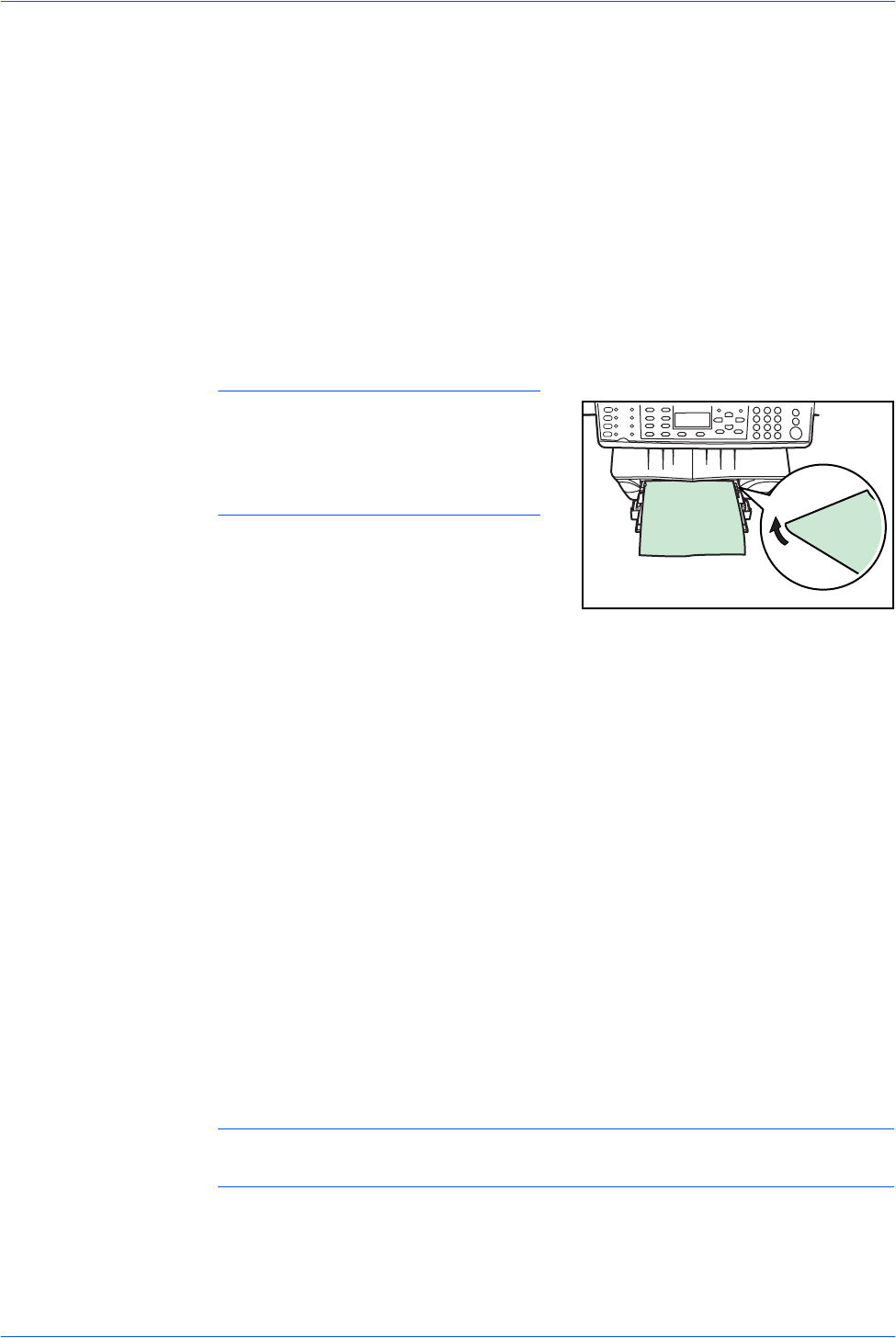
Appendix-8 ADVANCED OPERATION GUIDE
Do not use envelopes that have an encapsulated liquid adhesive.
Avoid long printing runs consisting of envelopes only. Extensive envelope printing
can cause premature printer wear.
To avoid jamming due to curled envelopes, do not leave more than approximately 10
printed envelopes stacked in the paper trays during multiple envelope printing.
Thick Paper
Fan the stack of paper and align the edges before loading them in the MP tray. Some
types of paper have rough edges on the back (those are created when the paper is
cut). In this case, put the paper on a flat place and rub the edges once or twice with,
for example, a ruler to smooth them in the same way as described in Postcards on
page Appendix-7. Feeding rough edged paper may cause paper jams.
NOTE: If the paper jams even after you
smooth it out in such a way, set the paper in
the MP tray with the leading edge raised up
a few millimeters as shown in the
illustration.
Colored Paper
Colored paper should satisfy the same conditions as white bond paper, listed in
Paper Specifications on page Appendix-1. In addition, the pigments used in the
paper must be able to withstand the heat of fusing during the printing process (up to
200°C or 392°F).
Preprinted Paper
Preprinted paper should have a bond paper base. The preprinted ink must be able
to withstand the heat of fusing during the printing process, and must not be affected
by silicone oil.
Do not use paper with any kind of surface treatment, such as the media type
commonly used for calendars.
Recycled Paper
Select recycled paper that meets the same specifications as the white bond paper
(refer to Paper Specifications on page Appendix-1.) except whiteness.
NOTE: Before purchasing recycled paper, test a sample on the machine and check
that the printing quality is satisfactory.


















